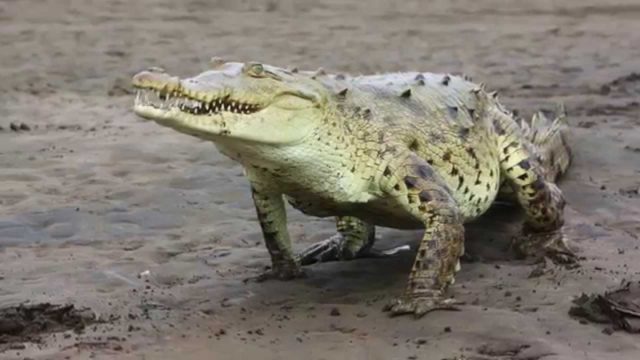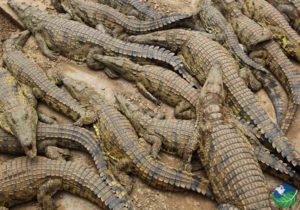The Contentious Administrative Court will initiate the final hearing of a lawsuit filed by environmental activist and lawyer Walter Brenes against the National System of Conservation Areas (SINAC) to compel the Costa Rican State to develop the respective Comprehensive Management and Monitoring Plans for crocodiles on the beaches and rivers of the country.
The lawsuit against SINAC and the State seeks to force them to develop a sustainable and sustainable strategy in the management of the species Crocodylus acutus (American crocodile).

According to Brenes, the report number DFOE-AE-IF-09-2014 of the Division of Operational and Evaluative Inspection of the Comptroller General of the Republic ordered the Executive Direction of SINAC “to establish and implement a monitoring system to know the status of populations of vulnerable species”, including Crocodile Crocodylus acutus (Reptilia: Crocodylidae)”.
“However, at present, SINAC and the State maintain a research program on Crocodile populations in Costa Rica, much less the management plans of that species in a specific area, thus not complying with its mandatory monitoring. and, therefore, no real knowledge is maintained about the situations and populations of crocodiles in Costa Rica and even none of the wild species in Costa Rica”, said the expert lawyer on environmental issues.
The analysis prepared by the Comptroller General of the Republic established that it is necessary to implement”… the systematic monitoring that allows the evaluation of the status of the species, in particular, those considered in danger of extinction, populations reduced or subject to internal regulations for their trade , it is fundamental for the conservation efforts in situ, to follow up on the health of the ecosystems, the timely taking of decisions and actions of restoration, rehabilitation, prevention, and control…”.
There is a rapid recovery of the species in Costa Rica
According to Brenes, when declaring the crocodile in danger of extinction, drastic measures of protection were taken since the 1990s, after having determined that the population of the species was quite small.

“Throughout these years, as demonstrated by documentary evidence that was attached to this judicial process, the population of crocodiles in Costa Rica has been increasing, without there being records of the number of specimens in the country, which even it has meant that crocodiles are observed in inhabited places, increasing the risk of incidents with people, generating what has been called as the Human-Crocodile conflict”, said the Managing Partner of the law firm ELAWF, law firm specializing in law environmental and filed a lawsuit.
Brenes said that currently there are no conclusive studies “or even monitoring by the State or SINAC to determine with certainty the condition of the crocodile population in Costa Rica. What can be concluded is that within the Costa Rican territory there has been no proper management and control of the species or human behavior with respect to the species, which has generated or caused a significant increase in crocodiles and, therefore, the space available for cohabiting between species has been reducing”.

